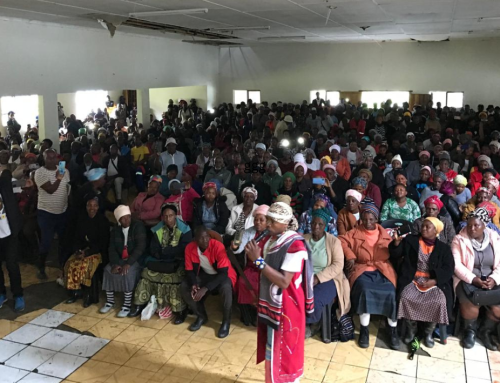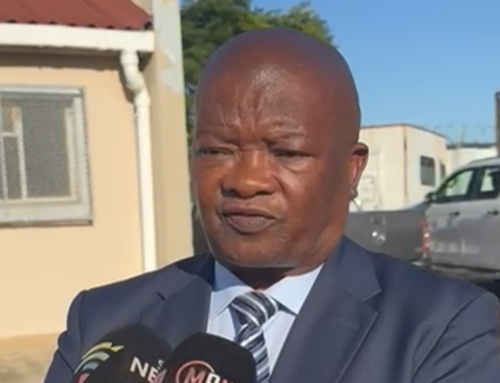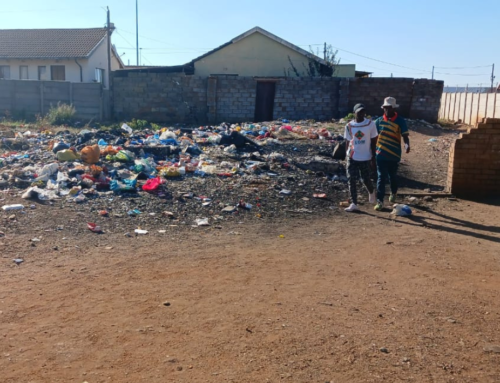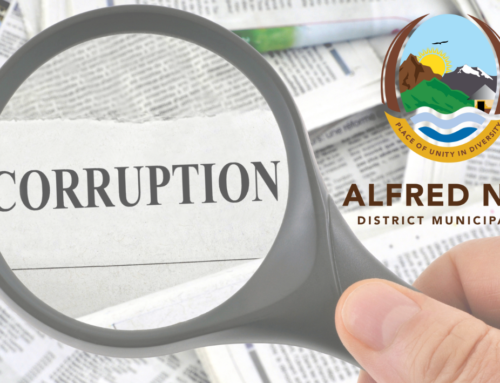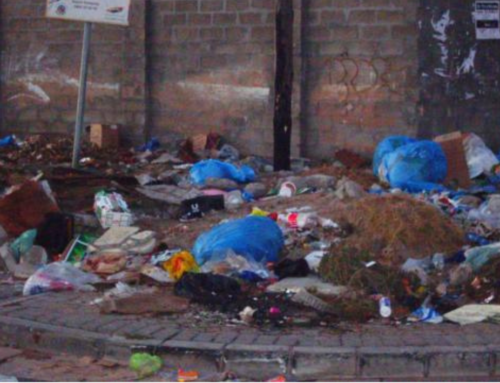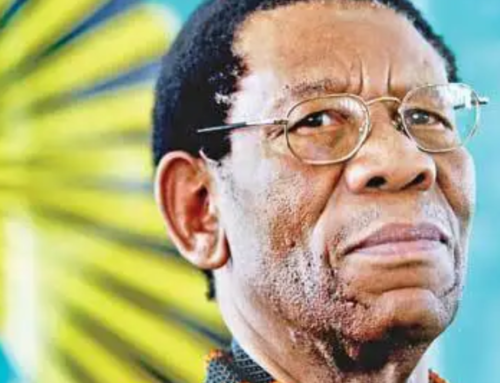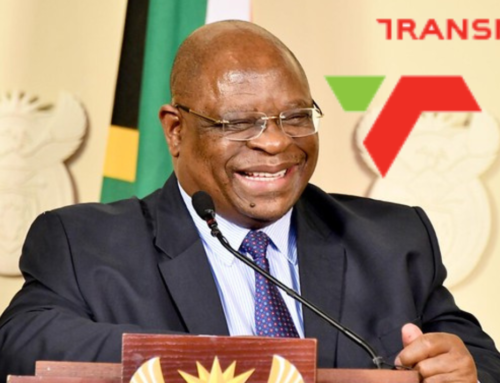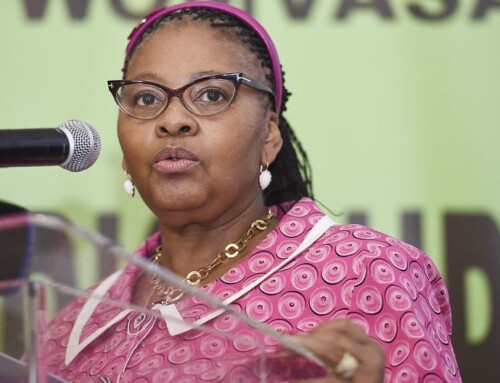 Speaking notes for Bantu Holomisa, MP and UDM President for a
Speaking notes for Bantu Holomisa, MP and UDM President for a
meeting with the Speaker regarding the Zondo and Mpati Commissions
in Room M514, Marks Building, Parliament
Check against delivery
Honourable Speaker
Honourable Colleagues
Members of Staff
Today is the culmination of a meeting of the various leaders of the opposition in Parliament who had met, back on 15 March 2022, to discuss several national issues that are important to us.
Two of those issues were the recommendations and findings of the Mpati and Zondo Commissions and how they would be addressed in Parliament.
We therefore resolved to write to your good office, Madame Speaker, and thank you that you have agreed to our request to discuss the two commissions I have just mentioned.
1. The Mpati Commission
Notwithstanding the importance of all the findings of the Mpati Commission, the United Democratic Movement (UDM) wishes to raise:
“The Recommendations on the Amendment of Legislation
14. It is the view of the Commission that there needs to be an urgent redrafting of legislation relating to the PIC. The current PIC Act should remain in force until new legislation is promulgated.
15. The drafting of such legislation must take account of the PIC Amendment Bill that has been passed by Parliament, as well as the findings and recommendations contained in the report of this Commission. Such a process must ensure wide stakeholder engagement and consultation and should be a priority to be completed as soon as possible.
16. The Board should not have, as a legal requirement, to include representatives of labour and depositors such as the GEPF. Every Board member owes a fiduciary duty to the PIC and does not represent their own interests on the Board. Thus, proposals in the PIC Amendment Bill on this issue may need reconsideration.
17. To the extent that the Minister might include the above, the representatives of Labour and/or depositors should be appointed as individuals and contribute their experience and expertise in keeping with the needs of the PIC Board.
18. The proposal to have PIC clients, such as the GEPF, on its Board will create conflicts of interest as the GEPF must hold the PIC accountable regarding the implementation of its mandate and investments the PIC makes.
19. Consideration could be given to a director being appointed from National Treasury, as this could assist the Board’s understanding of the Government’s priorities relevant to the PIC. Should such an appointment be made, it should not serve as a substitute for formal meetings between the PIC and the shareholder. There would also need to be clarity as to where fiduciary duties lie.
20. In terms of Directives issued by the Minister, they could be tabled in Parliament for debate. Needless to say, the decisions should be rational.
21. In redrafting legislation, the terms of the PIC Amendment Bill should require the National Assembly to play a stronger role, particularly with regard to reporting requirements and public accountability. To ensure greater transparency, the PIC should provide more information to the relevant parliamentary committee and, where appropriate, the National Assembly, including with regard to strategy, mandate implementation, and performance on both listed and unlisted investments.
22. The PIC should ensure that the actuarial valuation report is presented to the appropriate committee within three months of its conclusion.
23. The PIC Amendment Bill expands and makes explicit the investments the PIC must make such as in manufacturing and local investments. Though well intentioned, this is not appropriate and, if need be, broad parameters could be included in the GEPF Law or its mandate to the PIC.
24. The re-drafted PIC Act should consider what must be mandatory for the Minister to table in Parliament, for instance draft regulations, and must take into account comments arising from members of Parliament.
25. In terms of the FAIS Act, the PIC is required to meet its obligations in terms of this Act and the mandates it gets from clients.”
2. The Zondo Commission
The Zondo Commission, in its very first instalment, found that the ANC (African National Congress) had “…not only folded its arms and allowed state capture to flourish, but in some instances proceeds of this form of corruption flowed to its party coffers.” as the Mail and Guardian reported on 6 January this year.
In Part 1 Volume 3, section 37, now Chief Justice Zondo said:
“Eskom at some stage and Denel at some stage each of which were subsequently run down considerably with rampant corruption and state capture. All of which happened under happened under the watch of the Government of the ruling party, the African National Congress. Most, if not all, of these entities were led by the Chief Executive Officers and Boards of Directors who would have been approved by the ruling party through its national deployment committee. These entities did not drop overnight from the internationally highly regarded entities that they once were to what they subsequently became. The decline happened over a number of years but both the government and the ruling party failed dismally to make any effective interventions to halt the decline. Either they did not care or they slept on the job or they had no clue what to do.”
How, with these damning indictments do you, Madame Speaker, see a situation where ad hoc committees in Parliament are dominated by the very same ruling party.
How do you see a situation where the ANC sits at the table and drafts the terms of reference of an ad hoc committee that would look at the Zondo Commission’s reports?
How can the ruling party be a player and blow the whistle at the same game?
Furthermore, the playing field where party funding is concerned has never been level. The Zondo Commission has heard evidence on how the ruling party and some of its leaders have directly benefited through state capture.
Nobody has disputed this. We know that Bosasa and other entities such as Eskom (through Chancellor House) were used as conduits to sustain the ANC.
The public’s fear is that the Zondo Commission’s findings will result in a big fat zero and that no legislative changes will be affected.
Elsewhere in the world, a scandal of this magnitude would have resulted in government being asked to resign and elections taking place. But that is a debate for another day.
3. The Zondo Commission specifically on procurement
Apart from all the other findings of the Zondo Commission that concern legislation, the UDM, wishes to raise one important aspect that was raised in Part 1 that pertains to combatting corruption.
It refers to the Supply Chain Management Policy in South Africa and the problems with the legislative design or “mosaic” as the Zondo Commission puts it.
As the Zondo Commission puts it in paragraph 528:
“The sheer number of the Acts and the Regulations which address procurement issues makes it very difficult for conscientious officials to get a clear understanding of what is required from them. There is a need for procurement officers to interpret and to harmonise the various legislative enactments which would not be the case if the legislation was codified and unified. The gaps and the disharmonies occasioned by fragmentation present a considerable challenge to the honest procurement official whilst enabling the dishonest official to exploit obscurities and contradictions in the law.”
It therefore stands to reason that it is incumbent upon us, here in Parliament to give voice to the Zondo Commission’s observations and what they called a “fresh approach” i.e:
“539. A fresh approach would take into account:
539.1. the fact that certain goods and equipment may be required on a sectoral basis at national, provincial and local levels and that in cases of that sort a centralised procurement process is probably more efficient than a decentralised one and would further offer benefits in the form of price discounts and the like. Opportunities for centralised procurement would arise, for example, in the purchase of medicines or the acquisition of specialised equipment for hospitals, or in providing educational material for schools. National Treasury should be mandated to consider how centralisation of selected procurement processes could best be introduced;
539.2. special provision should be made in the case of high-value tenders. Such tenders should not be left in the sole care of decentralised procuring entities. National Treasury should be required to allocate an independent expert to attend, participate and report upon the process and to certify the outcome;
5.9.3. a mechanism must be found to address the situation where a procuring entity lacks the capacity to operate efficiently. In such cases procurement operations must be taken over by another entity which can do the job. The legislation should provide for the establishment of tender boards which are able to replace malfunctioning procurement entities wherever necessary;
539.4. decentralisation, on the scale that exists in South Africa, defies adequate monitoring and informed oversight. The result has been a decentralised procurement system which outruns available capacity and is subjected to fragmented and largely ineffectual supervision. That state of affairs must be corrected without delay and is further addressed in the recommendations in this Chapter;
539.5. subject to these constraints and limitations, the decentralised system will begin to operate at an acceptable level of efficiency in order to provide the benefits which a decentralised system should offer.”
The efficiency and the competence of procurement officers
540. The extent of the decentralisation places a massive strain on available capacity. A procurement system depends for efficient and ethical performance on the skill, knowledge and standards of conduct of the officials who identify the goods and services needed, accurately specify those requirements in the tender requests and who then administer the system as well as the procurement contracts which result. These activities require proper training as well as significant skills. The evidence given to the Commission indicates that all too often the officials involved have not been adequately trained and so lack the skills and the standards necessary to detect and confront corruption.
541. Training, experience and competence are essential tools in the fight against corruption. Training includes instruction in ethical standards.
542. It is fundamental to this discussion to acknowledge that procurement officials are members of a strategic profession and they are not discharging a simple administrative function by rote. This involves proper training programs and a proper system by which knowledge and skills are constantly updated and procurement officials supported through the sharing of information and data. In formulating international principles for public procurement the OECD identified, by way of fundamental principle, the need to ensure that procurement officials meet high professional standards of knowledge, skills and integrity. The OECD Report notes in this regard:
“Recognising officials who work in the area of public procurement as a profession is critical to enhancing resistance to mismanagement, waste and corruption. Governments should invest in public procurement accordingly and provide adequate incentives to attract highly qualified officials. They should also update officials’ knowledge and skills on a regular basis to reflect regulatory, management and technological evolutions. Public officials should be aware of integrity standards and able to identify potential conflict between their private interests and public duties that could influence public decision making.”
543. The ultimate responsibility for the creation of a regulated profession for procurement officials lies with National Treasury as does the formulation of adequate training programs. In that regard it is a matter of concern to note ongoing difficulties in raising the level of competence which have been experienced in ensuring that procurement officials obtain the necessary skills and qualifications. For the most part it appears that National Treasury has been setting time limits for the achievement of necessary qualifications only to find that it has to extend those time limits on an ongoing basis. That is not a situation which can be allowed to continue.
I thank you.



